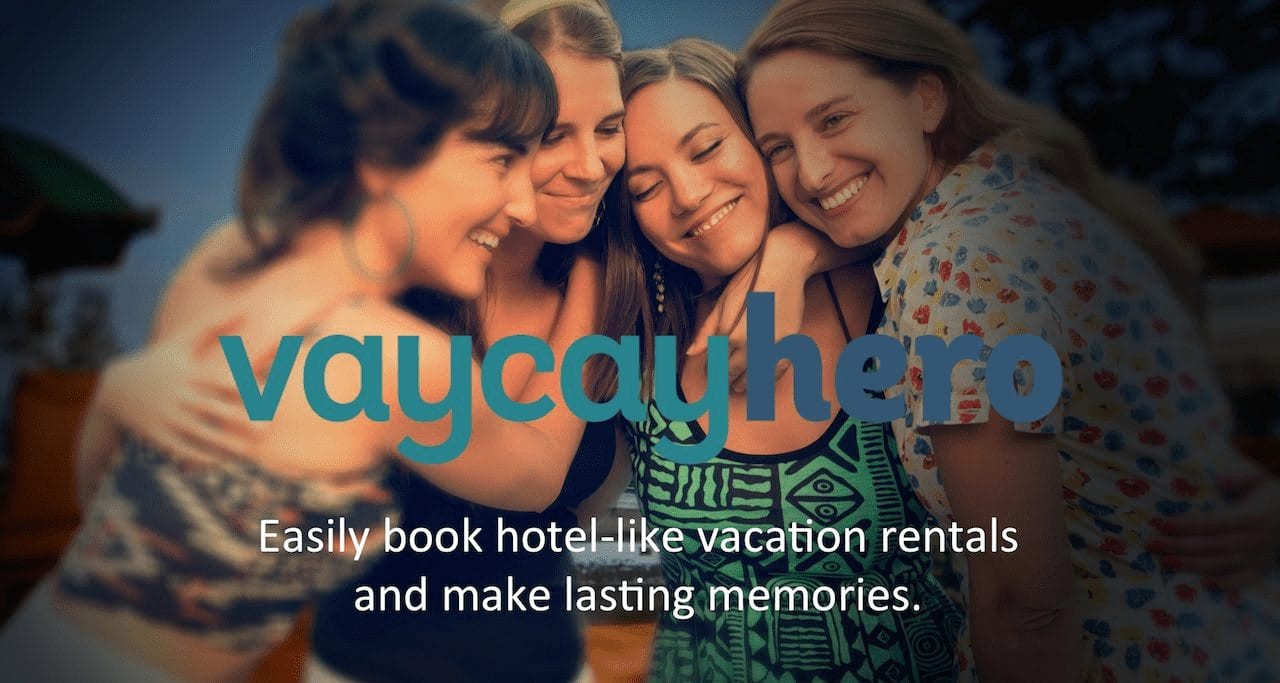VaycayHero, previously known as Zaranga, is suspending operations as of February 28, 2017, and has notified its vacation rental suppliers that it will not take any bookings past January 31.
To date, VaycayHero has raised approximately $4.8 million from angel investors and VCs, including a $836k investment from FundersClub just seven months ago.
In 2011, Zaranga was founded by Amitav Chakravartty and Anirban Bardalaye with the goal of providing a B2C marketplace that would connect guests with professionally managed, verified vacation rentals.
In 2012, Zaranga joined the Y-combinator class and began to develop the concept of dynamic pricing for professionally managed short term rentals. On Zaranga, like Priceline, guests could enter the price they were willing to pay for a vacation rental by clicking on the “Make an Offer” option. At the time, Bardlaye said, “There is no dynamic pricing in the vacation rental market, even though it is extremely common in the rest of the travel industry.”
However, the vacation rental marketplace was not yet ready for this type of functionality as the overall connectivity and communication between the listing sites and property managers was slow to develop and competition among listing sites was fierce. In addition, travelers were just beginning to discover vacation rentals for the first time, and marketplace usability was not yet normalized or trusted enough to introduce a “Make an Offer” process to consumers.
In 2013, Zaranga rebranded to VaycayHero as a more pure form of an OTA focused on online booking for professionally managed vacation rentals. They raised a $2.8 million seed round from Alexis Ohanian, Garry Tan, Scott Banister, Microventures, Tamarisc, Stucture Capital, and others. VaycayHero said it planned to use the capital to bring on more workers, expand into more markets, and continue growing the overall business.
In 2015, VacayHero raised an additional $550k and operated under a closed business model in which all listings were instantly online bookable only, and fees were collected from the traveler instead of the supplier.
VacayHero follows LeisureLink in shutting its doors, with a half dozen venture funded companies in the vacation rental industry expected to also suspend operations by the end of the year.




From an entrepreneurial point of view – this is one of the pitfalls of raising multi million dollar rounds of capital and building big teams before the underlying growth engine and model is validated.
I think I understand why it happens – i.e. there is enough circumstantial evidence to suggest that “this is going to work”. Though in many industries circumstantial is not enough to withstand the realities of a competitive category. Granted without the capital the business may never have gotten off the ground, though if they had found a way to grow and validate without taking a large investment that may have had more time tinker and work out a sweet spot/gap that could viably grown.
Anyway commiserations to the team and investors – hopefully they are able to understand in detail where things went wrong and get some “silver lining” learning out of it. I’ve been there before and it tough!
The original “make an offer” would have challenged the micro-economics of the usual VR businesses and would see the traffic challenges in an overcrowded market.
Tansler another alternative model recently came out of stealth mode: http://www.travelweekly.com/Travel-News/Travel-Technology/Tansler-reverse-auction-site-for-vacation-rentals-makes-debut
So be really interesting to see their progress.
I think we can expect to see a lot more marketplaces fold or be swallowed up (legacy and startups) in the next year.
https://www.rentivo.com/blog/vacation-rental-investors/
Brands have been built off significant spend by the Unicorns and Stags (not so rare). Maybe Google is worried about the brands that were built from PPC, but they have entered the fray too. Guests can and will head to these big brands for convenience and due to lack of awareness but guests will also seek the best deal, which has a minimum threshold for price with quality and this is direct business. Insurance has proved this as have airlines.
Said it so often now, this market will polarise into the 800lb gorillas and the owners/managers and the latter are aggregating and challenging the status quo and will directly support these marketing businesses. The underfunded and older middle market places without a niche, taking their cut are on thin ice. Lean and mean and smart tech will win the asset side of the argument.
Add in AI and the big brands may see some challenges from the big and later the small asset managers and owners.
Predictions from the hotel OTA market show the same trends.